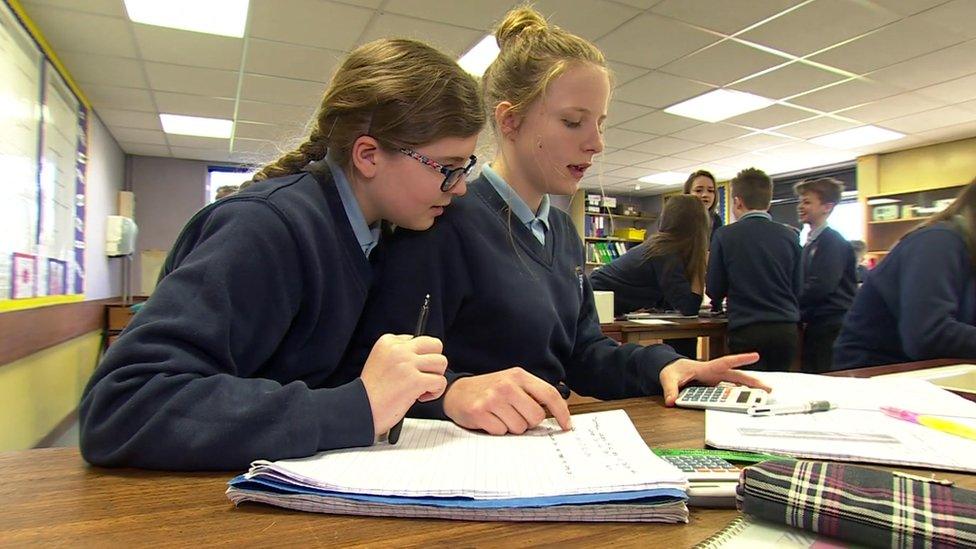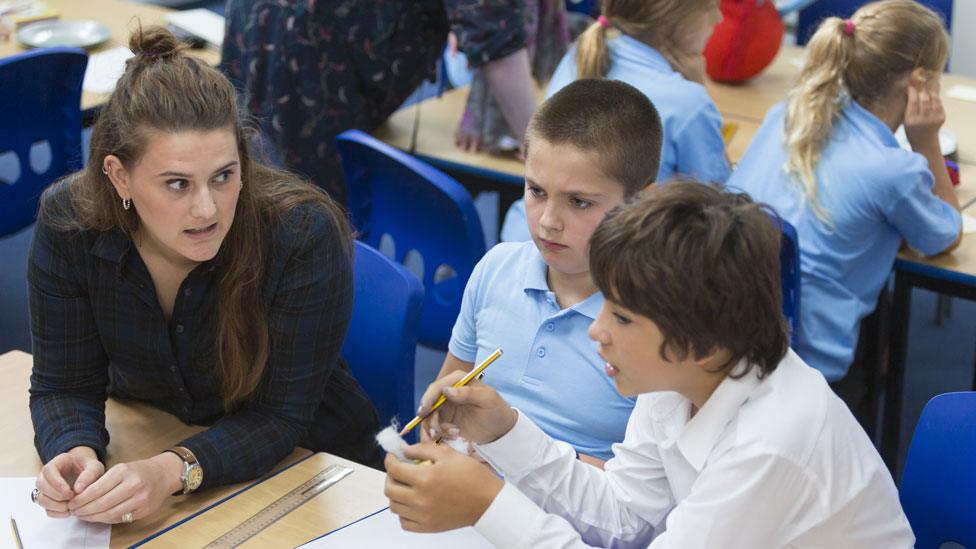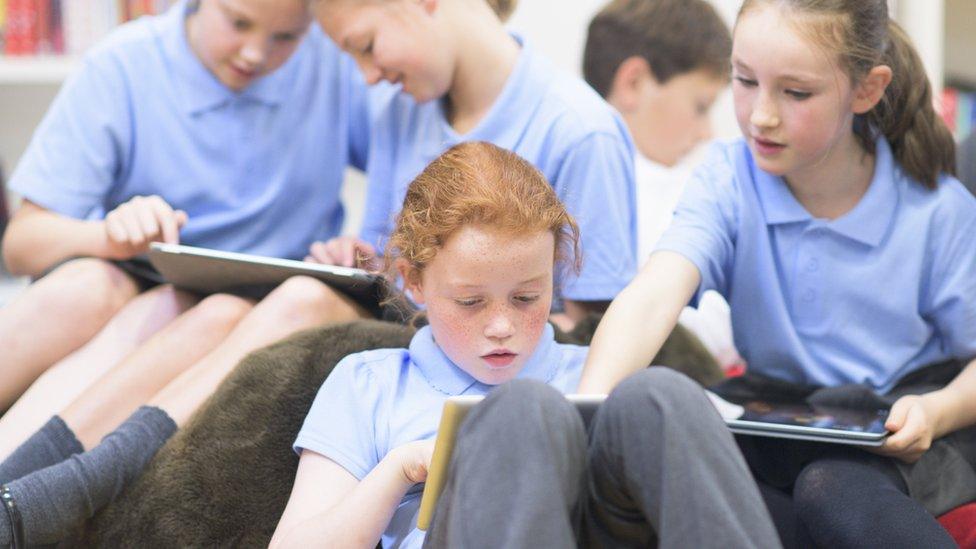School cutbacks put 'education system at risk'
- Published
- comments

The £3bn savings expected of England's schools threaten the stability of the whole education system, says the National Association of Head Teachers.
General secretary Russell Hobby says ministers should no longer be allowed to claim school funding is protected.
The Department for Education has said school funding is at record levels.
But the Institute of Fiscal Studies says this claim does not tell the whole story or take account of the impact of cost pressures on per pupil funding.
It has just published research which says to keep school funding at its present levels in real terms, an extra £2bn will be needed between 2017 and 2022.
'Admit the reality'
Between 2015 and 2017, schools had been required to make £1.7bn savings, it added.
Luke Sibieta, director of education, employment and evaluation at the IFS, said: "When the government says school funding is at record levels it isn't telling the whole story.
"It doesn't take into account cost pressures and the impact of those on per pupil funding," he told the BBC News website.
Mr Hobby, whose association is gathering for its annual conference in Telford, said that although a number of organisations had found significant cost pressures affecting schools, the government's standard line was that "school funding had never been higher".
He said rising costs and additional expenses, like increases in National Insurance and pension contributions, meant cash was not going as far as it used to.
"You can't expect it to. But the government is flatly refusing to admit the reality," he said. "Until they do, schools are at risk."
The association has been highlighting, along with other teaching unions, the cost pressures facing schools in England.
The rise in the amount that schools have to pay out is estimated to be £3bn by the National Audit Office between 2015 and 2020.
In research carried out with 1,100 union members, nearly three-quarters (72%) said their budgets would be "untenable" going forward to 2019-20.
Nearly a fifth, some 18% of respondents, said their schools were already in deficit.
'Toilet rolls'
Incoming NAHT president Anne Lyons said: "In my own school I've got to find £200,000 from somewhere.
"I don't know about you but that kind of cash isn't exactly lying around in reserves.
"It isn't ready to be simply wiped off the balance sheet just by buying my toilet rolls from a different company," she added, referring to DfE advice urging schools to look at how they procure products and services.
The Department for Education spokesman has said it has protected the core schools budget in real terms since 2010, with school funding at its highest level on record at almost £41bn in 2017-18 - and that is set to rise, as pupil numbers increase over the next two years, to £42bn by 2019-20.
"We recognise that schools are facing cost pressures, which is why we will continue to provide support to help them use their funding in cost effective ways and make efficiencies.
"This includes improving the way they buy goods and services and our recently published School Buying Strategy is designed to help schools save over £1bn a year by 2019-20 on non-staff spend."
- Published22 March 2017

- Published29 March 2017

- Published17 March 2017
